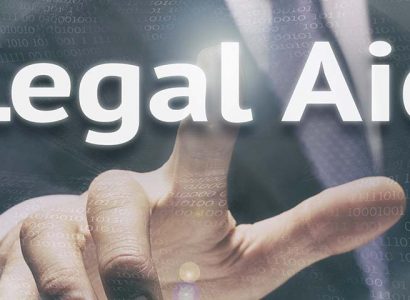By Mark Hodgson, Managing Director, Tremark Associates Ltd
Areas for consideration when personally serving Statutory Demands and Bankruptcy Petitions.
The new Practice Directions concerning Insolvency Proceedings came into force 23rd February 2012.
The Practice Direction contains procedural requirements relevant to all proceedings under the Insolvency Act 1986 and the Insolvency Rules 1986. In particular it affects Winding-up and bankruptcy petitions; and applications within existing insolvency proceedings, including the fixing of office-holders remuneration.
The purpose of this article is to highlight some of the key changes brought about by the new Practice Direction, and to provide a useful aide memoire to petitioning solicitors and process servers as to the important features of the Practice Direction, and its practical application when undertaking personal service of statutory demand and bankruptcy petitions.
The Practice Direction replaces all the previous Practice Direction, Practice Notes and Statements.
It is important to note that Practice Directions have Statutory Force whereas Practice Notes and Statements do not. Failure to comply therefore could result in an application to strike out under Rule 3.4(2) of the CPR. (Re: Gunningham (2002) BPIR 302)
All bracketed paragraphs below relate to the relevant Practice Direction with can be viewed by clicking here.
Significant items to note
• The heading of all court documents (including witness statements and certificates of service) in insolvency proceedings is prescribed and all insolvency proceedings should be commenced using prescribed forms. (Paragraph 4)
• Subject to the provisions of rule 7.9 or any other provisions or directions as to the form in which evidence should be given, written evidence in insolvency proceedings must be given by witness statement. (Paragraph 5.1)
• A statutory demand served on an individual is deemed to have been served on either; the date applicable to the method of service in CPR 6.26; or date of advertisement under rule 6.3 of the Insolvency Rules 1986. Petitioning creditors should therefore note that any statutory demand served after 4.30pm on a business day is not actually deemed served until the next business day. (Paragraph 13.1.1.)
• There is no requirement to obtain permission of the court to serve a statutory demand out of jurisdiction as a statutory demand is not a document issued by the court (Paragraph 13.2.1)
• Service in a foreign country must be carried out in accordance with rule 6.3 (2) and local foreign law. (Paragraph 13.2.4) A creditor may serve a statutory demand in a foreign country with which there is a civil procedure convention (including the Hague Convention) under the procedure prescribed by CPR parts 6.42 and 6.43 (Paragraph 13.2.3)
One of the main areas of clarification surrounds substituted service.
• Where the process server has undertaken all reasonable efforts, but has been unable to effect personal service of a statutory demand the practice directions (Paragraph 13.3.3) state that:-
‘The creditor must have taken all those steps which would justify the court making an order for substituted service of a petition. The steps to be taken to obtain an order for substituted service of a petition are set out below. Failure to comply with these requirements may result in the court declining to issue the petition (rule 6.11(9)) or dismissing it. (Paragraph 13.3.3)
The direction goes on to say (Paragraph 13.3.4) :-
‘In most cases, evidence of the following steps will suffice to justify acceptance for presentation of a petition where the statutory demand has been served by substituted service (or to justify making an order for substituted service of a petition):
1. One personal call at the residence and place of business of the debtor where both are known or at either of such places as is known. Where it is known that the debtor has more than one residential or business address, personal calls should be made at all the addresses.
2. Should the creditor fail to effect personal service, a first class prepaid letter should be written to the debtor referring to the call(s), the purpose of the same and the failure to meet the debtor, adding that a further call will be made for the same purpose on the [day] of [month] 20[ ] at [ ] hours at [place]. At least two business days’ notice should be given of the appointment and copies of the letter sent to all known addresses of the debtor. The appointment letter should also state that:
a. in the event of the time and place not being convenient, the debtor should propose some other time and place reasonably convenient for the purpose,
b. (In the case of a statutory demand) if the debtor fails to keep the appointment the creditor proposes to serve the debtor by [advertisement] [post] [insertion through a letter box] or as the case may be, and that, in the event of a bankruptcy petition being presented, the court will be asked to treat such service as service of the demand on the debtor;
c. (In the case of a petition) if the debtor fails to keep the appointment, application will be made to the Court for an order for substituted service either by advertisement, or in such other manner as the court may think fit.
3. When attending any appointment made by letter, inquiry should be made as to whether the debtor has received all letters left for him. If the debtor is away, inquiry should also be made as to whether or not letters are being forwarded to an address within the jurisdiction (England and Wales) or elsewhere.
4. If the debtor is represented by a solicitor, an attempt should be made to arrange an appointment for personal service through such solicitor. The Insolvency Rules enable a solicitor to accept service of a statutory demand on behalf of his client but there is no similar provision in respect of service of a bankruptcy petition.
5. The certificate of service of a statutory demand filed pursuant to rule 6.11 should deal with all the above matters including all relevant facts as to the debtor’s whereabouts and whether the appointment letter(s) have been returned. It should also set out the reasons for the belief that the debtor resides at the relevant address or works at the relevant place of business and whether, so far as is known, the debtor is represented by a solicitor’.
• It should be noted above that two separate wordings should be now used by process servers in letters of appointments for statutory demands and bankruptcy petitions (Paragraph 13.3.4.(2b&c))
• Letters of appointment should be sent by first class post to all known addresses for the debtor and not inserted through the letterbox or left with another individual at the address.
Areas of consideration not covered by The Practice Direction
• No reference is made within the updated Practice Direction with regards to form 6.11 or form 6.12 or the type of written evidence to be used when successfully personally serving a statutory demand. Rule 6.11 however, advises that there must be filed at court when issuing a bankruptcy petition ‘a certificate or certificates proving service of the demand’.
• No additional practice directions other than those detailed above (Paragraph 13.2.4) are given in relation to personal service of a bankruptcy petition which are dealt with under Insolvency rules 6.14 6.15 and 6.18. Rules 6.14 and the Practice Direction (Paragraph 5,1) suggest a witness statement as oppose to a certificate of service should be used in relation to evidence of substituted service of a bankruptcy petition.
• Where successful personal service of a bankruptcy petition is effected a certificate of service should be used (Rule 6.15)
• Rule 6.18 advises that ‘the petition will not be heard until at least 14 days have elapsed since it was served upon the debtor’. In the absence of alternative direction the author suggests that best practice to ensure time compliance is to adopt practice direction paragraph 13.1.1 and it’s reference to CPR 6.26 and the table which deals with deemed service which states:-
‘If it is delivered to or left at the permitted address on a business day before 4.30pm. on that day; or in any other case, on the next business day after that day.
Example:
If the hearing date is Tuesday 27th March 2012. The deadline for service is 4.29pm on Monday 12th March 2012.
However; if the hearing date is Monday 26th March 2012. The deadline for service is 4.29pm on Friday 9th March 2012 as any later (until 4.29pm on Monday 12th March) will be deemed served on Monday 12th March 2012 under CPR 6.26 and therefore not 14 days before the hearing date.
Should you have any queries regarding process serving or require any further information please contact Mark Hodgson or Karl Brooker on 0845 862 1853
Please click the links below for further information.
Insolvency Proceedings – Practive Directions – 23rd February 2012
Civil Procedure Rules – Part 6 – Service of Documents – PDF
Civil Procedure Rules – PRACTICE DIRECTION 6A – Service within the United Kingdom – PDF
Civil Procedure Rules – PRACTICE DIRECTION 32 – Evidence -PDF




